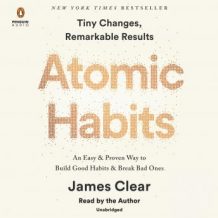iGen: Why Today’s Super-Connected Kids Are Growing Up Less Rebellious, More Tolerant, Less Happy–and Completely Unprepared for Adulthood–and What That Means for the Rest of Us Audiobook
iGen: Why Today’s Super-Connected Kids Are Growing Up Less Rebellious, More Tolerant, Less Happy–and Completely Unprepared for Adulthood–and What That Means for the Rest of Us Audiobook
- Madeleine Maby
- Simon & Schuster Audio
- 2017-08-22
- 9 h 52 min
Summary:
As observed in Period, USA TODAY, The Atlantic, The Wall Street Journal, and on CBS This Morning, BBC, PBS, CNN, and NPR, iGen is crucial reading to comprehend how the kids, teens, and adults given birth to in the mid-1990s and afterwards are vastly different from their Millennial predecessors, and from every other generation.
With generational divides wider than ever, parents, teachers, and employers come with an urgent need to understand today’s increasing generation of teens and adults.
Born in the mid-1 about iGen: So why Today’s Super-Connected Kids Are Growing Up Less Rebellious, More Tolerant, Less Happy–and Completely Unprepared for Adulthood–and What That Means for ordinary people 990s up to the mid-2000s, iGen is the first generation to spend their entire adolescence in the age of the smartphone. With social media marketing and texting replacing other activities, iGen spends much less time using their friends in person—perhaps contributing to their unprecedented levels of stress, depression, and loneliness.
But technology isn’t the thing that makes iGen unique out of every generation before them; they are also different in how they spend their period, how they behave, and in their behaviour toward religion, sexuality, and politics. They socialize in new ways, reject once sacred sociable taboos, and need different things using their lives and professions. More than prior generations, these are obsessed with security, focused on tolerance, and have no endurance for inequality.
Using the first associates of iGen just graduating from college, we all have to understand them: relatives and buddies need to look out for them; businesses must figure out how to recruit them and sell to them; universites and colleges have to know how exactly to educate and information them. And people of iGen also need to understand themselves because they talk to their elders and describe their views to their old peers. Because where iGen will go, so goes our country—and the world.






